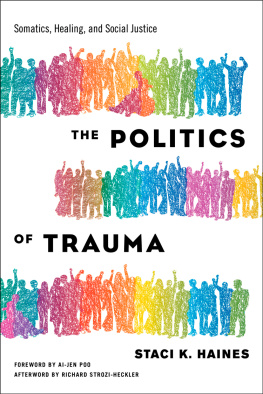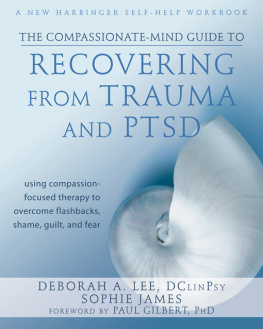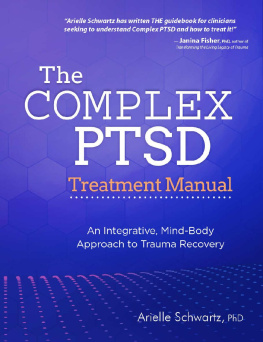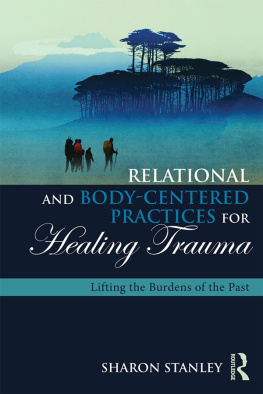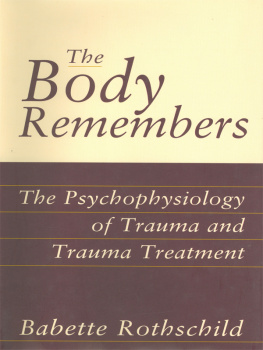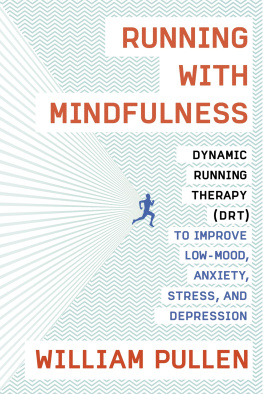
Copyright 2019 by Staci K. Haines. All rights reserved. No portion of this book, except for brief review, may be reproduced, stored in a retrieval system, or transmitted in any form or by any meanselectronic, mechanical, photocopying, recording, or otherwisewithout the written permission of the publisher. For information contact North Atlantic Books.
Published by
North Atlantic Books
Berkeley, California
Cover design by Rob Johnson
Book design by Happenstance Type-O-Rama
Printed in Canada
The Politics of Trauma: Somatics, Healing, and Social Justice is sponsored and published by the Society for the Study of Native Arts and Sciences (dba North Atlantic Books), an educational nonprofit based in Berkeley, California, that collaborates with partners to develop cross-cultural perspectives, nurture holistic views of art, science, the humanities, and healing, and seed personal and global transformation by publishing work on the relationship of body, spirit, and nature.
For Jamie, Sam, and Torie, thank you for being amazing humans and all you bring to my life.
For my Mom, Mary Kay Haines, for staying in the healing and complexity all these years, and for your love of justice.
Foreword
The work of #metoo is about healing. Its about healing as individuals and healing as communities.
Tarana Burke
Beware that, when fighting monsters, you yourself do not become a monster ... for when you gaze long into the abyss, the abyss also gazes into you.
Friedrich W. Nietzsche
T here are things we have control of in life and things we dont. But a mentor of mine used to say we always have choices. We cannot control the actions or behavior of othersbut we do have agency over how we respond to those actions. We cannot control what systems or culture we are born into, but we can control how we engage with or attempt to change those systems.
The organization I lead, the National Domestic Workers Alliance, serves the more than two million womenmostly women of colorwho work in our homes as nannies, cleaners, and home care workers. This is the workforce we count on to care for our loved ones and whom we entrust with many of the most precious parts of our lives. And despite their importance to millions of families, they are among the most undervalued workers in our economy today. Excluded from basic labor protections and working under extreme isolation, this workforce is vulnerable to a range of abuses from the everyday violence of poverty to the more extremeincluding human trafficking and sexual violence. Many of the women who do this work are survivors in every sense of the wordliterally carrying the suffering and the dreams of their families across borders and on their shoulders.
Most of us experience some form of trauma in the course of our lives. It shapes us in conscious and unconscious ways. For many of usthe events that cause trauma are deeply rooted in our culture and society, reinforced by a set of beliefs, norms, and policies that are structural and hierarchical in nature. While we experience them as individuals, they are not caused by individual choices or failure.
We have many tools to heal from trauma as individuals. And we also have some tools to change policy, systems, and culture. But rarely do the two meet; somehow the minute we are talking about violence and trauma at a systemic level, the human element gets lost. And when were trying to heal as individuals we often attempt to do so in a vacuum, as if the therapists office or the meditation cushion were islands in a sea devoid of systems of power and privilege.
For those of us working toward social change and justice, it sometimes occurs to us that we may be missing something. When you realize that meeting you attended about inclusion feels exclusive. Or the rally for justice features speakers who dehumanize one group to humanize another. The truth is that we are all, as human beings, a work in progress. We are shaped by trauma, deeply and profoundly flawed and imperfect. Weve internalized our trauma and adapted in healthy and unhealthy ways including judgments against ourselves and others. But if you claim to seek progress and social change, you will be held to a higher standard of intentionality about how you manage that imperfection and proactively seek to develop, evolve, and heal.
At the National Domestic Workers Alliance, we knew that if we wanted the people with the most at stake leading the way in transforming domestic work, we would need to address trauma head-on and create a movement that would not only not re-traumatize us, but help us heal. Not only win policy change to heal social injustice, but support individual change and resilience. We believed it would be impossible to achieve one without the other. With the help of the author of this book, we created leadership programs that promote healing from trauma. We created a culture that includes practices to help us stay centered and connectedto one another and to our shared purpose; practices that support our individual well-being and our ability to truly be powerful collectively. And its made all the difference in our ability to be powerful together.
We live in a time of profound change in every aspect of our culture, economy, and politics. Deep divisions are being sown by people in the highest levels of elected office. Violence and trauma show up everywhereand its nearly impossible not to internalize it. The #MeToo movement has shown us the potential to wrench change out of trauma in positive ways; opening an unprecedented cultural conversation and truth-telling about the reality of sexual violence, and moving us toward healing and long-overdue solutions. The activism of women is powering a new movement to protect and expand our democracy. Much of the work of this time is to ensure that in the midst of so much change and volatility, we begin to set new patterns, new relationships, and a new culture that allows us to heal through all the change.
Unfortunately, harm is part of the human experience. Healing, in our systems and in ourselves, is core to realizing the human promise. Its not easy. In fact, it may be some of the hardest work we have to do.
That is why we need this bookfull of insight and ideas at the intersection of personal transformation and social change. As you seek to make change in this rapidly changing world, take it with you and keep it close.
Ai-jen Poo, Director of the National Domestic Workers Alliance
Gratitude
T hank you to the many, many people who have partnered with me in this depthful and wacky path of somatics. Particularly, thank you for your partnership in interfacing somatics and social and environmental justice movementsSpenta Kandawalla, Raquel Lavia, Chris Lymbertos, Nathan Shara, Alta Starr, Denise Perry, Xochitl Bervera, Sumitra Rajkumar, RJ Maccani, and Morgan Bassichis. Thank you to the originals Vassi Kapila, Elizabeth Ross, Lisa Thomas-Adeyemo, Liu Hoi Man, and Jennifer Ianniello it only happened once! Thank you all for being creative, bold, and willing to take risks that dont make sense at first glance. A special gratitude to Spenta Kandawalla for co-creating the Somatics and Social Justice Collaborative and gs! Ill be forever grateful, and we have things to laugh about for the rest of our days.
Thank you to Richard Strozzi-Heckler for your decades of committed practice, and the generosity with which you share your arts. I am impressed by how you hold the depth and mastery of the work in a highly commoditized world, and pass it beyond your known worlds. Thank you for being a lifelong learner and creative force.
Next page
